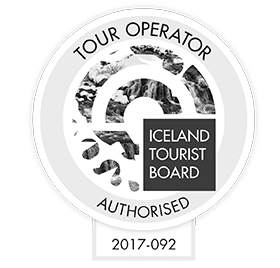- Vehicle Guide
- Passenger cars
- Estate
- Electric
- 4x4 SUVs
- Suzuki Jimny 4x4
- Dacia Duster 4x4
- Suzuki Vitara 4x4
- Suzuki Vitara auto 4x4
- Dacia Bigster 4x4
- Kia Sportage 4x4 Auto
- Kia Sportage PHEV 4x4 auto
- Mitsubishi Outlander PHEV 4x4 auto
- Toyota Rav4 4x4
- Toyota Rav4 4x4 auto
- Kia Sorento 4x4 auto
- Toyota Landcruiser 150 4x4 auto
- Toyota Landcruiser 250 4x4 auto
- Landrover Discovery 5 4x4 auto
- Landrover Defender 4x4 auto
- Prestige
- Minivans
- 4x4 Camper
- Motorhomes
- Driving in Iceland
- Our services
- Locations & Hours
- Travel Inspiration
- South Iceland: A complete guide
- Reynisfjara Beach in Iceland - Your Guide to a Safe Visit
- Best Times to Visit the Golden Circle in Iceland
- North Iceland: A Complete Guide for Drivers
- East Iceland A Complete Guide for Drivers
- West Iceland The Complete Driver’s Guide
- Your Ultimate Guide to Exploring Iceland’s Ring Road
- Driving the Diamond Circle in Iceland: Your Ultimate Guide
- Driving Iceland's Golden Circle: Your Ultimate Guide
- A 10-Day Itinerary in Iceland: Tips + Ideas
- The Perfect Itinerary for 7 Days in Iceland
- The Best Time to See the Northern Lights in Iceland with a Rental Car
- Renting a Camper in Iceland: The Complete Guide
- Getting to Iceland: A Comprehensive Guide on How to Reach the Land of Fire and Ice
- Nature Bath Locations in Iceland: A Complete Guide
- Iceland with Kids: A 5-Day Self-Drive Itinerary
- Winter Driving in Iceland: A Comprehensive Overview for Foreign Tourists
- The Total Solar Eclipse in Iceland – August 12, 2026
- Exploring Iceland's National Parks on a Self-Drive Adventure
- Exploring Iceland's Wonders: A Comprehensive Guide to Activities and Car Rentals
- Springtime in Iceland – Your Comprehensive Travel Guide
- Exploring Iceland's Most Popular Highland Routes
- The Pearls of Westfjords: The Ultimate Guide
- Exploring Iceland's Hidden Gems | Off-the-Beaten-Path Adventures
- Driving in Iceland in June: Tips for a Safe and Scenic Summer Road Trip
- Driving in Iceland in July: Tips, Routes & Rentals
- Driving in Iceland in August: Late-Summer Freedom on the Open Road
- Guide to Skaftafell Iceland Self-Drive A Journey Through Fire and Ice
- Eco-Friendly Road Trips in Iceland, Sustainable Travel Tips
- Photographer’s Paradise Top Scenic Drives in Iceland for Stunning Shots
- Iceland's Folklore and Legends A Road Trip Through Mythical Sites
- Iceland’s Midnight Sun and How to Make the Most of 24-Hour Daylight
- Exploring Iceland’s Viking Heritage: Top Historical Sites
- Chasing Waterfalls: A Road Trip to Iceland’s Most Spectacular Cascades
- Iceland's Volcanic Wonders: A Self-Drive Tour of Active and Dormant Volcanoes
- Tee Off in the Land of Fire and Ice: A Guide to Golfing in Iceland
- Birdwatching in Iceland: Puffins and Beyond
- Iceland’s Diverse Beaches: Beyond the Black Sands
- Icelandic Horses: The Unique Breed of the North
- Beyond the Ring Road: Iceland’s Hidden Scenic Drives
- Iceland’s Ice Caves: A Year-Round Adventure
- Wildlife Watching in Iceland: Where and When to Go
- Iceland’s Hidden Hot Springs: A Self-Drive Guide to Secret Soaks
- Navigating Iceland’s Weather: What to Expect Each Season
- Tröllaskagi Peninsula: Iceland’s Mountainous Marvel — A Scenic Road Trip with Höldur
- Mastering Iceland's Roundabouts: A Driver’s Guide
- Essential Tips for Renting a Car in Iceland
- Navigating Iceland’s One-Lane Bridges: Your Guide to Safe and Scenic Crossings
- Exploring Iceland’s Film Locations by Rental Car
- 5 Must-Visit Destinations Within Two Hours of Keflavík Airport
- Seasonal Car Rental Tips for Iceland’s Summer Festivals
- Understanding Iceland's F-Roads: How to Drive Safely Into the Highlands
- What Makes Iceland Unique: Top 15 Highlights for an Unforgettable Journey
- Driving and Hiking in Harmony: Explore Iceland's Natural Wonders with Höldur Car Rental
- Best Car to Rent in Iceland?
- Avoiding Common Car Rental Mistakes in Iceland
- Making Your Car Rental in Iceland Child-Friendly: Tips for Stress-Free Family Travel
- Exploring Akureyri, Iceland’s Northern Gem, with EasyJet and Europcar
- Renting a Manual or Automatic Car in Iceland
- Discover the Arctic Coast Way in Iceland with Höldur Car Rental
- How to Save on Fuel Costs During Your Iceland Road Trip
- Electric vs. 4x4 Rentals in Iceland: Which is Right for Your Trip?
- Top Scenic Detours Off Iceland's Ring Road
- Top Safety Tips for First-Time Drivers on Iceland’s Roads
- Cultural Pit Stops Along Iceland’s Ring Road
- Your Guide to Exploring Stuðlagil Canyon by Car: Iceland’s Basalt Beauty Awaits
- Day Trip Ideas From Reykjavik by Rental Car
- Visit Glymur Waterfall: The Ultimate Self-Drive Adventure from Reykjavík
- Discover the Volcanic Wonders of Lake Mývatn by Car
- Discovering the Magic of Snæfellsnes Peninsula by Car
- Your Self‑Drive Guide to Gullfoss Waterfall
- A Guide to Seljalandsfoss Waterfall in Iceland: Explore by Car
- Exploring Reykjanes Peninsula A Self Drive Guide
- Exploring Iceland Landmannalaugar by 4x4
- A Beginner's Guide to River Crossings in Iceland
- Best Car Rental Offers for Iceland’s Summer Adventures
- Your Self‑Drive Guide to Þingvellir National Park
- Your Ultimate Guide to Geysir, Iceland: All You Need to Know
- How to Pay for the Vaðlaheiðargöng Tunnel
- Your Guide to Visiting Jökulsárlón Glacier Lagoon
- The Diamond Beach in Iceland: A Sparkling Wonder Worth Visiting
- Parking fines in Iceland: how to pay and what to do if you receive one
- Where to find overnight parking in Reykjavík: a local’s guide for travellers
- How to park for free in Reykjavík: tips to save on your Iceland trip
- How to pay for parking in Reykjavík - A friendly guide for drivers in Iceland
- Game of Thrones Filming Locations in Iceland: A Self-Drive Guide
- How to Choose the Right Car Rental at Keflavík Airport
- Flying Within Iceland: Your Guide to Domestic Routes and Regional Airports
- Top 3 Must-See Attractions on Iceland's Golden Circle
- Hidden Gems Along the Golden Circle Route
- Your Essential Guide to Iceland: Currency, Culture, and Car Rental Tips
- How to Plan the Perfect Golden Circle Self-Drive Tour
- The Comprehensive Guide to Rental Car Sizes at Keflavik Airport
- Húsafell & Hallmundarhraun: Hidden Lava Field Adventures by Car
- Iceland Weather by Month: What to Expect and How to Drive Safely with Holdur Car Rental
- A Guide to Iceland’s Quirky Roadside Attractions
- Exploring Iceland’s Lava Tubes | Self-Drive Cave Adventures with Höldur Car Rental
- Coolcation in Iceland: Self-Drive Your Summer Escape to the North
- Driving Iceland’s Coastal Roads: A Guide to Lesser-Known Peninsulas
- Top Tips for Driving in Iceland Safely Year-Round
- The Best Rest Stops and Viewpoints Along Iceland's Ring Road
- Driving in Iceland in September: Embrace the Autumn Adventure
- Your Guide to Exploring Fjaðrárgljúfur – South Iceland’s Fairytale Canyon
- Explore Reykholt on a Self-Drive Tour in Iceland
- How to Choose the Right Insurance for Your Iceland Car Rental
- Hiking Múlagljúfur Canyon: Iceland’s Hidden Gem You Can’t Miss
- Understanding Iceland's Weather and How It Affects Driving Conditions
- Dyrhólaey: A Complete Self-Drive Guide to Iceland's Breathtaking South Coast
- Where to See Iceland’s Tectonic Plates Up Close
- Scenic Journey on Kjalvegur Road 35 Reykjavik to Akureyri
- Guide to Visiting Svartifoss with a Rental Car
- Kerið Crater Lake in Iceland: A Self-Drive Guide
- Your Complete Guide to Stokksnes, Iceland with a Rental Car
- Hengifoss Waterfall in Iceland: The Ultimate Self-Drive Guide
- Your Complete Guide to Visiting Skógafoss Waterfall with a Rental Car
- Into the Heart of Þórsmörk: Iceland’s Valley of Thunder
- Dynjandi Waterfall in Iceland: The Ultimate Self-Drive Guide
- Visiting Ásbyrgi Canyon in North Iceland by Car: A Complete Self-Drive Guide
- Driving in Iceland in October: Embrace the Autumn Transition
- Hraunfossar: Iceland’s Hidden Gem for Self-Drive Travellers
- Barnafoss Waterfall: Iceland’s Raging Cascade with a Legend
- Driving in Iceland in November: Your Complete Guide to a Spectacular Autumn Adventure
- Fishing in Iceland: All You Need to Know
- Öxarárfoss Waterfall in Iceland: A Self-Drive Guide with Höldur
- Life in Iceland: Essential Guide to Living in the Land of Fire and Ice
- People of Iceland - 12 Fun Facts About Icelanders
- Glaumbær Turf Houses: A Self-Drive Guide to Iceland’s Living History
- Húsavík: Whale Watching Capital of Iceland
- Svínafellsjökull Glacier: A Self-Drive Guide to Iceland’s Ice Giants
- Kirkjubæjarklaustur: A Historic South Coast Gem
- Vík í Mýrdal: South Iceland’s Coastal Treasure
- Namaskard: A Self-Drive Guide to Iceland’s Geothermal Wonderland
- Laufás Heritage Site: Where Iceland’s Past Lives On
- Navigating Iceland's Gravel Roads: Tips for a Safe and Smooth Drive
- Iceland's Best Stargazing Spots for Self-Drive Travellers
- Iceland's Best Picnic Spots: Scenic Stops for Self-Drive Adventures
- Top 5 Family-Friendly Hiking Trails Accessible by Rental Car
- 15 Tips for Travelling to Iceland
- How to Plan a Winter Photography Road Trip in Iceland
- Visiting Gljúfrabúi Waterfall — A Self-Drive Guide
- How to Spot Puffins in Iceland: A Self-Drive Adventure
- Your Essential Guide to Winter Tyres and Safe Driving in Iceland
- Iceland’s Most Active Volcanoes: A Self-Drive Guide
- Iceland’s Most Scenic Bridges and River Crossings: A Self-Drive Guide
- Iceland’s Most Instagrammable Spots for Self-Drive Travellers
- How Cold Is It in Iceland During Winter? A Self-Drive Guide
- Explore Dimmuborgir: A Self-Drive Guide to Iceland's Dark Castles
- The Ultimate Guide to Iceland’s Top 5 Waterfalls by Car
- Iceland’s Best Scenic Routes for Autumn Foliage: A Self-Drive Guide
- The Best Time to Visit Iceland for Self-Drive Travellers
- Self-Drive Adventures to Iceland’s Remote Lighthouses
- Selfoss Waterfall Self-Drive Guide: Explore Iceland Your Way
- All About the Icelandic Sheep
- Vestrahorn: A Self-Drive Guide to Iceland’s Stokksnes Peninsula
- Höfn, Iceland: The Lobster Town Self-Drive Guide
- Exploring Arnarstapi: A Self-Drive Guide
- A Guide to Iceland's Seasonal Foods for Your Road Trip
- Hverfjall Crater, Iceland: A Self-Drive Guide
- Self-Drive Guide to Visiting Askja
- A Self-Drive Guide to Visiting Kerlingarfjöll
- A Self-Drive Guide to Gunnuhver Geothermal Area
- Skriduklaustur, Iceland: A Self-Drive Guide to History & Culture
- Your Ultimate Guide to Visiting the Blue Lagoon in Iceland
- Borgarnes, Iceland: Top Things to Do & Self-Drive Guide
- A Guide to Glaciers in Iceland
- Car Rental Insurance in Iceland: What’s Usually Included, What’s Not & How to Choose
- Best Car Models for Iceland’s Terrain: Recommendations by Route
- Solo Traveller’s Guide to Self-Driving in Iceland
- Exploring Iceland’s Arctic Circle: What to See and Do
- How to Plan a Budget-Friendly Road Trip in Iceland
- The History of Iceland’s National Day: A Self-Drive Celebration
- Where to Spot Whales in Iceland: A Self-Drive Guide
- The Diamond Circle vs. The Golden Circle: Which Route is Right for You?
- Embracing a Greener Journey: Sustainability in Iceland
- Granni: A Self-Drive Guide to Iceland’s Neighboring Waterfall
- Háifoss: A Self-Drive Guide to Iceland’s Tallest Waterfall
- Iceland's Best Camping Spots for Road Trippers
- Gjáin: A Self-Drive Guide to Iceland’s Hidden Oasis
- Iceland's Hidden Waterfalls: Beyond the Tourist Trails
- Hjálparfoss: A Self-Drive Guide to Iceland’s Helping Falls
- Seasonal Self-Drive Itineraries in Iceland: What’s Open When?
- Kirkjufell: A Self-Drive Guide to Iceland’s Most Photographed Mountain
- Fjallabak Nature Reserve: A Self-Drive Guide to Iceland’s Rugged Highlands
- Hrafntinnusker: A Self-Drive and Hiking Guide to Iceland’s Obsidian Wilderness
- When to Visit Iceland: Northern Lights and Ice Caves vs. Hiking and Highland Adventures
- Visiting Laugarvatn Fontana Spa with a Rental Car: A Relaxing Icelandic Getaway
- Hvítserkur Rock: A Self-Drive Guide to Iceland’s Dragon of the North
- Skiing in Iceland: A Self-Drive Guide for Winter Adventurers
- Visiting the Mývatn Nature Baths by Car: A Self-Drive Guide
- Visiting Vök Baths in East Iceland: A Self-Drive Guide
- Visiting Skútustaðir Pseudo-Craters: A Self-Drive Guide
- Visiting Hljóðaklettar: A Self-Drive Guide on the Diamond Circle
- The Ultimate Guide to Exploring Reykjavik with a Rental Car
- Visiting Seljavallalaug: A Hidden Gem in South Iceland
- Guide to Sólheimajökull Glacier by Iceland Car Rental
- Eyjafjallajökull: Iceland’s Glacier Volcano
- Ísafjörður, Iceland: Your Ultimate Self-Drive Guide to the Westfjords
- What Continent is Iceland In? A Traveler's Guide
- Katla Volcano: A Guide to Iceland's Sleeping Giant
- The Magic of Icelandic Water: A Traveler's Guide
- A Guide to Exploring Akureyri by Rental Car
- A Self-Drive Guide to the Krafla Volcanic Region
- 12-Day Iceland Self-Drive: The Complete Itinerary
- Hekla Volcano: A Self-Drive Guide to Iceland's Gateway
- Visiting Deildartunguhver: A Self-Drive Guide to Europe’s Most Powerful Hot Spring
- Exploring Borgarfjörður: A Self-Drive Guide to West Iceland
- Exploring Stórurð: A Self-Drive and Hiking Guide to East Iceland
- Visiting the Forest Lagoon in North Iceland: A Self-Drive Guide
- Driving in Iceland in December: Embrace the Winter Wonderland
- Exploring Grábrók: A Self-Drive Guide to Iceland’s Volcanic Crater
- Exploring Látrabjarg: A Self-Drive Guide to Iceland’s Westernmost Point
- Iceland Car Hire Tips for UK Drivers: What You Need to Know
- 4-Day Iceland Winter Itinerary: The Best of the South
- Mount Mælifell: Iceland’s Emerald Volcano
- How Long to Drive Around Iceland? A Self-Drive Guide
- Driving in Iceland in January
- Exploring Djúpavík: A Self-Drive Guide to Iceland’s Remote Westfjords
- What to Wear in Iceland: Tips for Every Season
- Things to Do in Stykkishólmur: A Self-Drive Adventure Through Iceland’s Magical West
- The Secret Lagoon: Iceland’s Hidden Gem of Relaxation and Discovery
- The Silver Circle of Borgarfjörður: Your Ultimate Self-Drive Guide
- Snæfellsjökull: A Journey to Iceland’s Glacier of Legends
- Car Rental Iceland 4x4: Best 4WD Options for Your Trip
- What to See in Iceland: 20 Places You Don’t Want to Miss
- How to Prepare for an Iceland Road Trip
- Your Guide to Visiting Fagrifoss Waterfall by Car
- Exploring Stakkholtsgjá Canyon: A Self-Drive Adventure in Iceland
- Kolugljúfur Canyon: A Guide to Iceland's Hidden Gem
- Exploring Kvernufoss: A Hidden Gem in South Iceland
- Skógar Museum: A Journey Through Iceland's History
- 2 Days in Iceland: The Perfect Itinerary
- Exploring Berserkjahraun: A Self-Drive Guide to Iceland’s Lava Fields
- Driving in Iceland in February: Your Complete Guide
- Iceland Daylight Hours by Month: Planning Your Trip
- Petra’s Stone Collection: A Self-Drive Gem in East Iceland
- Iceland's New Kilometer-Based Road Tax: Everything You Need to Know
- Krýsuvíkurbjarg Cliffs: Self-Drive Guide to Iceland’s Wild Coast
- Brimketill: The Reykjanes Peninsula’s Natural Lava Pool
- Exploring Eldhraun Lava Field: A Self-Drive Guide to Iceland’s Volcanic Marvel
- Iceland 2026 Car Rental Guide
- Choosing the Best 4x4 for Iceland's Westfjords
- How Sagas and History Shape Iceland's Driving Routes
- Driving in Iceland After Dark: How to Plan Safe Evening & Night Drives
- What to Do When Roads Close in Iceland: A Traveller’s Plan B Guide
- Iceland With a 2WD Only: No‑Gravel, No F‑Road Itineraries
- Iceland Through the Windshield: Landscapes You’ll See Without Leaving the Car
- Iceland EV Road Trips Made Easy (2026 Guide)
- Iceland Speed Cameras & Fines: The 2026 Driver’s Guide for Visitors
- 24 Hours in Iceland (KEF Layover): Two Seasonal Micro-Itineraries by Car
- Self-Drive Iceland for First-Timers: A Realistic Day-by-Day Pace Guide
- The Complete Self-Drive Guide to Fjallsárlón Glacier Lagoon
- Route 60 Westfjords Road Trip: Dynjandi, Þingeyri & New Tunnels Explained
- Baldur Ferry With a Rental Car: Stykkishólmur ↔ Brjánslækur
- Iceland at Easter: 5‑Day Self‑Drive Itinerary from KEF
- Westman Islands by Rental Car + Ferry: Day Trip from the South Coast
- Reykjavík Northern Lights Pull-Outs: Safe Self-Drive Spots within 45 Minutes of the Capital
- Staying Connected: Best SIM Cards and Wi-Fi Options for Your Iceland Road Trip
- The "Gas & Go" Logistics Guide: How to Pay for Gas in Iceland Without Getting Stranded
- Iceland Wind Guide for Drivers
- Fjallsárlón vs Jökulsárlón: Which Glacier Lagoon to Visit by Car?
- Iceland Road Conditions by Region (What to Expect Beyond Weather)
- Iceland’s Best Scenic Loops
- Iceland for Everyone: Accessible Natural Wonders by Car
- Iceland’s Most Photogenic Churches: A Scenic Architectural Drive
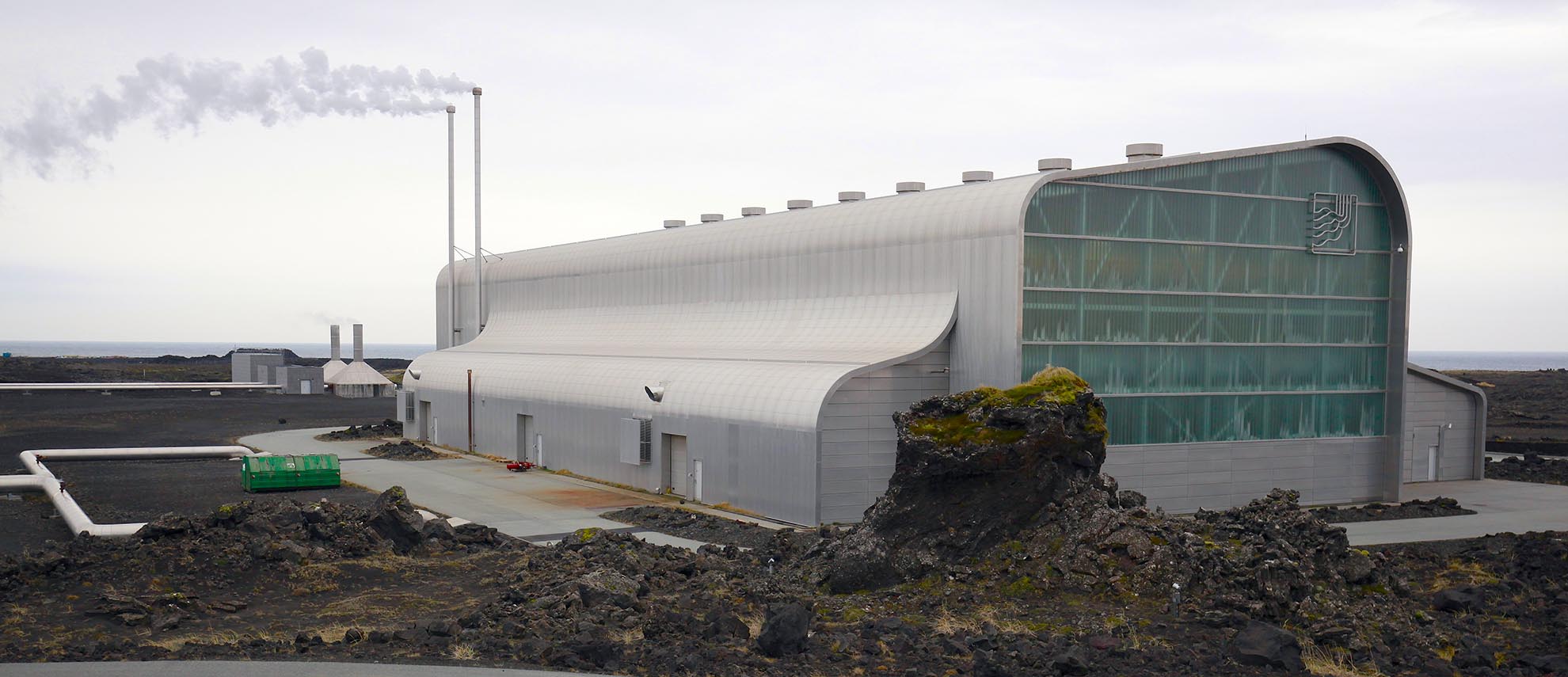
Cultural Insights
Embracing a Greener Journey: Sustainability in Iceland
06.03.2025
Iceland, a land of fire and ice, is known for its dramatic landscapes, from expansive glaciers to active volcanoes. But beyond its stunning natural beauty lies a deep commitment to sustainability. This dedication is not just a trend; it's woven into the very fabric of Icelandic life, influencing everything from energy production to social well-being. For travelers, understanding this commitment can transform a simple visit into a more meaningful and responsible journey.
This guide will explore the different facets of sustainability in Iceland. We will cover the nation's pioneering use of renewable energy, its efforts in environmental protection, and the principles of economic and social stability that guide its future. We will also provide practical advice on how you can participate in sustainable travel, ensuring your adventure leaves a positive impact.
Iceland's Leadership in Sustainable Energy
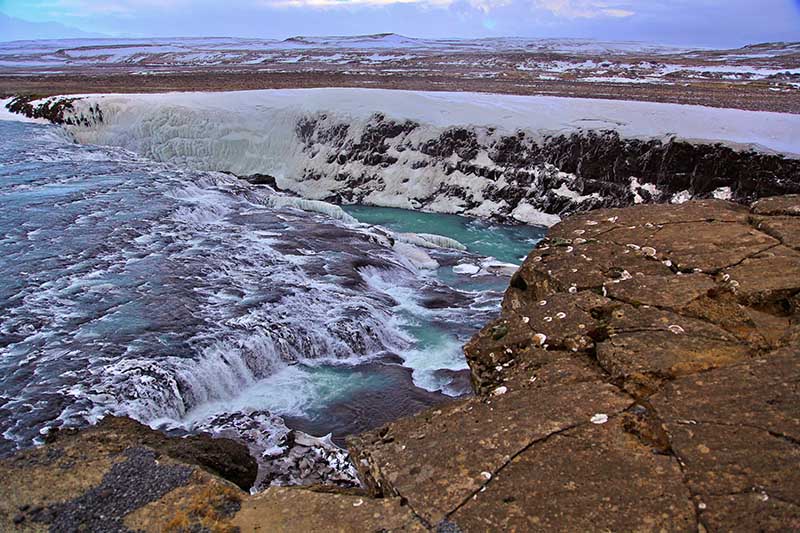
Iceland is a world leader in renewable energy. Nearly 100% of the country's electricity is generated from renewable sources, a remarkable achievement that sets a global standard. This success is rooted in the island's unique geology, which provides abundant geothermal and hydropower resources.
The Power of Geothermal Energy
Sitting atop the Mid-Atlantic Ridge, Iceland is a hotspot of geothermal activity. This natural heat from the Earth's core is harnessed to produce clean energy. Geothermal power plants tap into underground reservoirs of hot water and steam, which drive turbines to generate electricity. This process provides about 30% of the nation's electricity.
Beyond electricity, geothermal energy is used to heat approximately 90% of Icelandic homes and buildings. This direct use of geothermal heat significantly reduces the country's reliance on fossil fuels. You can see this power firsthand at geothermal areas like the Geysir geothermal field or by visiting one of the many geothermally heated swimming pools found in towns and cities across the country.
Harnessing Hydropower
The remainder of Iceland's electricity, about 70%, comes from hydropower. The country's numerous glaciers and rivers, fed by ample rainfall and snowmelt, provide the perfect conditions for generating hydroelectricity. Power plants are strategically built along major rivers, using the force of flowing water to create a reliable and clean energy source. This combination of geothermal and hydropower makes Iceland's energy grid one of the most sustainable in the world.
Environmental Sustainability: Protecting a Fragile Land

Protecting its unique environment is a top priority for the people of Iceland. The landscape, while rugged, is often fragile and susceptible to damage from human activity. Conservation efforts are crucial for preserving the natural wonders that draw visitors from around the globe.
National Parks and Protected Areas
Iceland has three magnificent national parks: Þingvellir, Vatnajökull, and Snæfellsjökull. These parks protect vast areas of historical and geological significance.
- Þingvellir National Park is a UNESCO World Heritage site, recognized for both its geological importance as the meeting point of the North American and Eurasian tectonic plates and its historical role as the site of Iceland's first parliament.
- Vatnajökull National Park is one of Europe's largest national parks, encompassing the massive Vatnajökull glacier and a diverse range of landscapes, including volcanoes, ice caves, and glacial rivers.
- Snæfellsjökull National Park surrounds the iconic Snæfellsjökull volcano, made famous by Jules Verne's novel "Journey to the Center of the Earth."
These protected areas have strict regulations to minimize environmental impact. It is essential for visitors to stay on marked trails, respect wildlife, and follow all park rules. The use of drones in Iceland, for example, is heavily restricted within national parks to protect nesting birds and ensure a peaceful experience for all.
The Pledge for Responsible Tourism
The Icelandic government and tourism industry have collaborated on initiatives to promote responsible travel. The Icelandic Pledge is a voluntary code of conduct for tourists, encouraging them to travel safely, respect nature, and leave places as they found them. By taking this pledge, you commit to being a mindful traveler. This includes simple acts like not disturbing delicate moss, avoiding off-road driving, and properly disposing of waste.
Economic and Social Sustainability
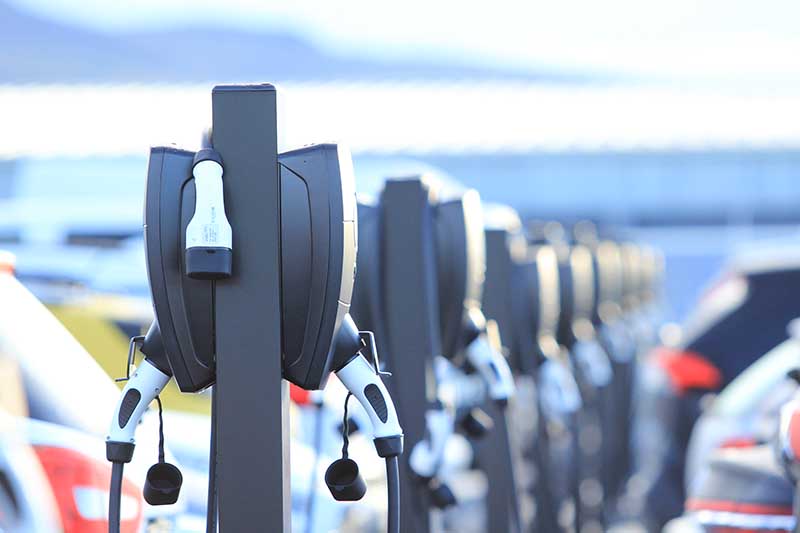
True sustainability extends beyond environmental concerns. It also involves creating a stable economy and a fair society that can thrive for generations to come.
A Resilient and Diversified Economy
For centuries, fishing was the backbone of Iceland's economy. While still important, the economy has diversified significantly. Tourism has become a major pillar, alongside renewable energy, technology, and creative industries. This diversification helps build economic resilience.
Responsible tourism plays a key role in economic sustainability. When you choose to support local businesses—from small guesthouses and restaurants to local tour operators and craftspeople—you contribute directly to the communities you visit. This helps ensure that the economic benefits of tourism are distributed throughout the country, supporting local jobs and preserving the unique Iceland culture and traditions.
A Society Built on Equality and Well-being
Social sustainability is about fostering a healthy, equitable, and educated society. Iceland consistently ranks among the top countries in the world for quality of life, gender equality, and overall happiness. The strong social safety net, universal healthcare, and high-quality education system are cornerstones of this success.
What language do people in Iceland speak? The official language of Iceland is Icelandic, a North Germanic language that has changed little since the time of the Vikings. However, you will find that English is widely spoken, especially among younger generations and in the tourism industry. The people of Iceland are proud of their language and heritage, and learning a few basic Icelandic phrases can be a wonderful way to connect with the local culture.
Sustainable Travel in Iceland: Your Role in the Journey
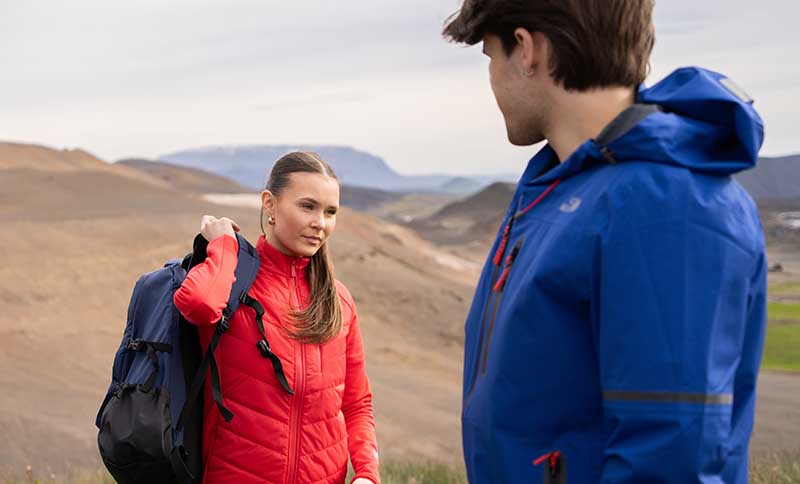
As a visitor, you have a vital role to play in supporting Iceland's sustainability goals. A little planning and mindful behavior can make a big difference. Renting a car in Iceland is one of the best ways to explore the country at your own pace, and making sustainable choices with your car hire can enhance your trip.
Choosing the Right Vehicle
Selecting the appropriate vehicle for your itinerary is the first step. If you plan to stick to the main Ring Road and paved roads, a standard 2WD vehicle is sufficient for most of the year. This is often a more fuel-efficient and affordable car rental Iceland option.
However, if your plans include visiting the Highlands or exploring more remote areas via the mountain roads (F-roads), a 4x4 car hire is essential. F-roads in Iceland are unpaved gravel tracks that are only open during the summer months and legally require a four-wheel-drive vehicle. Driving a 2WD car on these roads is not only illegal and unsafe but can also cause environmental damage. Choosing the right hire car 4wd ensures your safety and protects the delicate terrain.
Responsible Driving and Travel Practices
Once you have your Iceland rental car, responsible driving is key.
- Stay on Marked Roads: Never drive off-road. The Icelandic soil and vegetation are extremely fragile, and tire tracks can leave scars on the landscape that take decades or even centuries to heal.
- Respect Speed Limits: The speed limit in Iceland is generally 90 km/h on paved roads, 80 km/h on gravel roads, and lower in urban areas. Adhering to these limits is crucial for safety, especially given the often-unpredictable Iceland weather.
- Be Mindful of Fuel: Check gasoline prices in Iceland and plan your refueling stops, as gas stations can be far apart in rural areas. Driving efficiently by maintaining a steady speed and avoiding rapid acceleration can help conserve fuel.
- Plan Around Daylight: Iceland daylight hours by month vary dramatically. In summer, you can enjoy nearly 24 hours of daylight, while winter days are very short. Plan your driving during daylight hours for better visibility and safety, particularly during winter when road conditions can be challenging.

Frequently Asked Questions: Sustainable Travel and Car Rental in Iceland
How does Iceland generate its energy sustainably?
Iceland produces almost all of its electricity from renewable sources, primarily geothermal and hydropower. This means the country benefits from clean, reliable energy with minimal carbon emissions, making it a global leader in sustainability.
Are electric vehicles (EVs) available for car rental in Iceland?
Yes, Holdur Car Rental offers Iceland’s largest fleet of electric vehicles. Choosing an EV for your car hire reduces your carbon footprint and supports the country’s environmental goals, all while enjoying reliable mobility across much of Iceland.
What should I know about driving on Iceland’s F-roads?
F-roads in Iceland are mountain routes with rough terrain, which require a four-wheel-drive (4WD) rental car. These roads are only open in summer and should be driven with caution to avoid damaging sensitive nature and ensure your own safety.
How do I travel responsibly in Iceland?
Practice responsible travel by respecting speed limits, staying on marked roads, avoiding off-road driving, safely disposing of waste, and supporting local businesses. If you’re renting a car in Iceland, choose a fuel-efficient or electric option and plan your trips to minimize environmental impact.
What makes Holdur Car Rental a sustainable choice?
Holdur leads sustainability in the Icelandic car rental industry by investing in the largest EV fleet and being the first car rental company in Iceland to achieve ISO14001 environmental certification. This reflects a deep commitment to both environmental stewardship and customer safety.
How cold is Iceland, and what weather should I expect year-round?
Iceland weather all year is variable. Winters can be cold with temperatures often below freezing, while summer offers mild temperatures, generally between 10–15°C (50–59°F). Always check the Iceland weather month by month and prepare for changing conditions when planning your road trip.
What is the speed limit in Iceland?
Speed limits are typically 90 km/h on paved rural roads, 80 km/h on gravel roads, and lower within towns and cities. Adhering to speed limits helps protect wildlife, pedestrians, and other travelers, as well as the local environment.
Is it easy for English speakers to travel in Iceland?
Absolutely. While the official language of Iceland is Icelandic, English is widely spoken, especially in tourism-related services. This makes it easy for international visitors to communicate and enjoy their Iceland rental car experience.
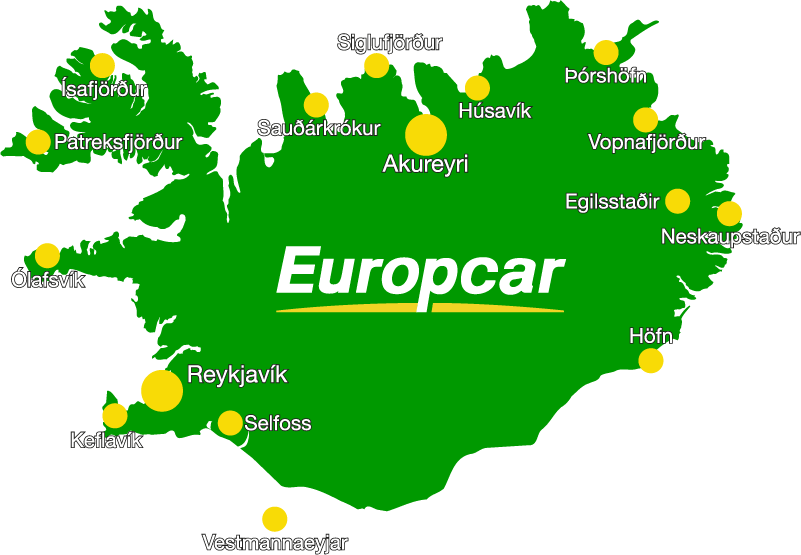
Supporting a Sustainable Future
Exploring Iceland is a privilege. By embracing the principles of sustainability, you can help ensure that its incredible landscapes and unique culture are preserved for future generations to enjoy. From choosing a fuel-efficient rental car to supporting local businesses and respecting nature, your actions contribute to a greener, more responsible way of traveling.
At Holdur Car Rental - Europcar, we are dedicated to helping you explore Iceland responsibly—and we’re proud to have pioneered sustainability within the Icelandic car rental market. Holdur has made significant investments in Iceland’s largest electric vehicle (EV) fleet, providing our customers with cleaner, more environmentally friendly mobility options.
We are also the first car rental company in Iceland to earn certification according to the ISO14001 environmental standard, reflecting our ongoing commitment to minimizing environmental impact and upholding the highest standards of environmental management. With a diverse fleet suited for every itinerary and expert guidance to support safe, sustainable travel, we invite you to join us in protecting this extraordinary country for future generations.




